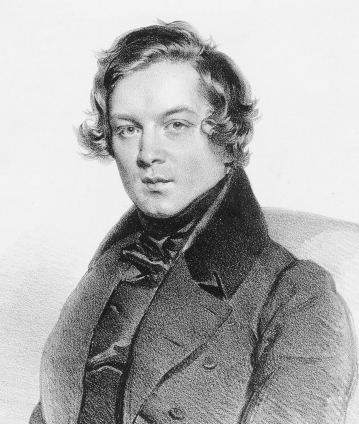Robert Schumann
Composer
In the course of the 19th century, Robert Schumann, the epitome of the German Romantic, was overshadowed by the controversy between Wagner and Brahms followers, and Schoenbergian Modernism was also unable to find a connection. However, composers today such as Heinz Holliger and Jörg Widmann explicitly refer to Schumann’s subjective tone and unusual formal strategies.
His life story, which has been turned into several films, illustrates the light and dark sides of the Romantic era. The love story with Clara Wieck, the most important female pianist of the nineteenth century, which was initially thwarted by his future father-in-law, eventually culminated in a marriage which was anything but uncomplicated on a personal level, but unusually productive artistically. After a suicide attempt, the composer, who had been mentally unstable his whole life, spent his last few years in a mental hospital. Schumann’s late work, which was long misunderstood as documenting his mental breakdown, has now been rehabilitated by many eminent performers. Schumann, who was also known for his writings on music, was long considered a master of small forms, although he also left behind extensive orchestral works. In addition to the four symphonies and three solo concertos, these also include several more unusual compositions for soloists, chorus and orchestra such as the Szenen aus Goethes Faust which Claudio Abbado and Daniel Harding performed together with the Berliner Philharmoniker, and the oratorio Das Paradies und die Peri, a favourite piece of Sir Simon Rattle.